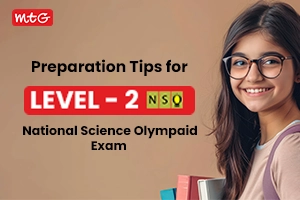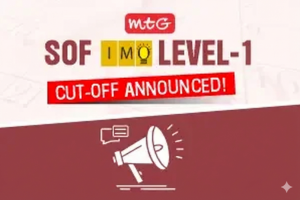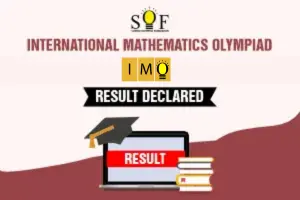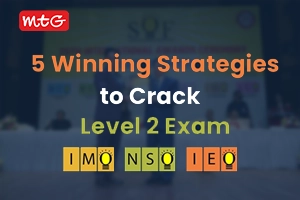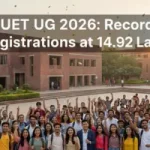
Highlights
- 💡 Logical Reasoning: Contributes to success in over 70% of SOF Olympiad top scorers.
- 💡 Start Smart: Begin with a diagnostic test to pinpoint weak reasoning areas.
- 💡 Use Class-Wise Tools: Practice with MTG Workbooks and past Olympiad papers tailored to your grade.
- 💡 Consistency Pays Off: Just 15–20 mins/day can boost accuracy by up to 40% within a month.
- 💡 Enhance Skills Long-Term: Use puzzles, quizzes, and a “mistake journal” to sharpen logical thinking.
I know it feels uniquely exciting when you are preparing for your SOF Olympiad, chances are, this could even be your first time. Specially, it’s not just about the syllabus or how many hours you put in, there’s a certain set of skills & mindset involved. And one of the most important parts that I am about to talk about in today’s blog is logical reasoning.
Today’s blog is all about how anyone can focus on developing logical reasoning skills for Olympiad success. Whether you’re just starting your preparation or wish to dig deeper into these words, this is one skill that may make or break your SOF Olympiad results
You will come to know how to take a step-by-step approach here to see the difference in your logical thinking skills. And while this blog is written from the perspective of someone who has walked the Olympiad path before, it’s a gem for you, the curious learner ready to develop and challenge their mental sharpness like never before.
Important – SOF Olympiad 2025-26 Exam Dates, Preparation Strategy, and More
Table of Contents
- How Can It Help in Your Exams, Even in Your Olympiad Exam?
- How to Assess Your Starting Point
- Decide on What the Right Resource is for Your Prep
- How to Use Them to Improve Your Logical Reasoning Skills
- More Tips to Improve
- Let’s sum up what we’ve covered
- Frequently Asked Questions (FAQs) on Logical Reasoning and SOF Olympiad Preparation
How Can It Help in Your Exams, Even in Your Olympiad Exam?
Logical reasoning isn’t limited to just one section of the exam. It supports you in:
- Understanding questions quickly.
- Eliminating wrong answer choices smartly.
- Applying concepts to non-routine problems.
- Staying calm under pressure.
For Olympiads, especially where patterns can often be surprisingly unpredictable, logical reasoning becomes your Olympiads’ secret weapon. From the NSO to IGKO, reasoning helps you overcome and solve a variety of problems that aren’t just about what you see or know, but how you think.
Remember, logic is the bridge between knowledge and application. And SOF Olympiads test exactly that.
Recent – Section-wise tips for excelling in SOF IEO: Grammar, Vocabulary, Comprehension
How to Assess Your Starting Point
Before jumping into practice papers and books, it’s crucial to know where you currently stand. Here’s how you can assess yourself:
- Take a diagnostic test – Choose a reasoning worksheet or section from past Olympiad papers.
- Observe how you solve – Are you guessing, or logically eliminating? Are you slow or stuck at certain types of questions?
- Identify your pattern – Verbal vs. non-verbal reasoning, analytical vs. critical thinking—what’s your strength? What needs work?
This honest self-check sets the foundation.
Also Check – Olympiad Exam vs. Regular Exam: Key Differences Students Must Know
Decide on What the Right Resource is for Your Prep
There are many resources available, but not all of them are equally created and not for everyone, especially when it comes to Olympiad prep. Here’s how to decide what’s right for you:
- Choose age-appropriate material – For example, MTG’s Olympiad Reasoning Workbooks are designed and focused specifically class-wise.
- Go beyond school textbooks – Olympiad reasoning questions usually test higher-order thinking, not just rote learning.
- Practice from previous years’ papers – MTG’s Olympiad Previous Years’ Papers or Reasoning Sample Sets can simulate the real challenge.
- Use digital platforms or apps – Short quizzes, logic puzzles, and reasoning games can turn learning into a fun daily habit.
How to Use Them to Improve Your Logical Reasoning Skills
Gathering important resources is one thing, using them effectively is another. Here’s a method that worked for our many ex-Olympiad students:
- Start small – Focus on 5-10 reasoning questions a day instead of overwhelming yourself.
- Understand the “why” – Don’t move on unless you understand why an answer is right and why the others are wrong.
- Time yourself – Logical reasoning rewards clear thinking under a time challenge.
- Group study occasionally – Discussing logic puzzles or patterns with your folks and friends can give you new ways of thinking.
- Repeat tougher questions – Frequent repetition of your brain builds patterns.
- Pro tip from the past: It’s not about getting it right the first time; it’s about training your brain to think in steps.
More Tips to Improve
Solve puzzles and brain teasers daily, such as Sudoku, riddles, and pattern games, as they make logic part of your lifestyle. Use “why” questions in daily life, like let’s say “Why does this work like that?” This habit trains you to think deeper about everything.
Watch logic-based videos or podcasts from platforms like YouTube that have Olympiad-based reasoning tutorials. Teach someone else; explaining a logic problem to your sibling or friend can help you clarify it better for yourself.
Review your mistakes regularly: Keep a “mistake journal” to revisit wrong attempts and understand your thought process. The Olympiad student from years ago often wished they had taken reasoning seriously earlier, not just as a section in the exam, but as a skill to own.
You will also like – SOF Olympiad Success Stories: How Our Students Achieved Top Ranks with MTG’s Live Online Classes
Let’s sum up what we’ve covered
Logical reasoning is more than just a section—it’s a core part of success in Olympiads and beyond.
Assessing your starting point honestly helps focus your effort. The right resources (like MTG’s Olympiad guides and workbooks) are your companions, not just tools.
Daily life habits and fun logic games can make reasoning second nature. It’s not about being the smartest in the room. It’s about learning to think creatively and consistently. That’s what logical reasoning teaches you, and that’s what helps you win.”
Frequently Asked Questions (FAQs) on Logical Reasoning and SOF Olympiad Preparation
1. Why is logical reasoning important for SOF Olympiads?
Logical reasoning helps you think clearly under pressure, identify patterns, eliminate wrong choices, and apply knowledge creatively—all of which are essential for excelling in Olympiads.
2. Is logical reasoning a separate section in all Olympiads?
Not always, but logical reasoning is often integrated into Olympiad exams like NSO, IGKO, and IMO, either as a distinct section or within application-based questions.
3. How can logical reasoning improve my overall exam performance?
It enhances your ability to understand complex problems quickly, reduce guesswork, and stay composed during timed tests, giving you a distinct advantage.
4. How do I know if my reasoning skills are strong or weak?
You can take a test using previous years’ Olympiad papers or reasoning worksheets and evaluate your speed, accuracy, and problem-solving approach.
5. What’s the first step to improving logical reasoning for Olympiads?
Start with a self-assessment. Understand your strengths and areas that need improvement—verbal vs. non-verbal, analytical vs. critical reasoning.
6. Which books or resources are best for Olympiad reasoning prep?
Class-specific materials like MTG’s Olympiad Reasoning Workbooks, previous years’ papers, and MTG’s reasoning sample sets are highly recommended.
7. Are school textbooks enough for Olympiad reasoning?
No. Olympiads require higher-order thinking, which goes beyond the rote learning offered in school textbooks.
8. How should I structure my daily practice?
Start small with 5–10 questions a day. Focus on understanding why answers are right or wrong. Gradually increase complexity and speed.
9. How can group study help in reasoning practice?
Discussing puzzles and logic questions with peers or family can expose you to new problem-solving approaches and enhance your critical thinking.
10. Are there apps or online tools for reasoning practice?
Yes. Look for digital platforms that offer reasoning games, timed quizzes, and interactive puzzles to make your practice more engaging and consistent.
You might like – Preparation tips to Score High in the International Hindi Olympiad (IHO) 2025




